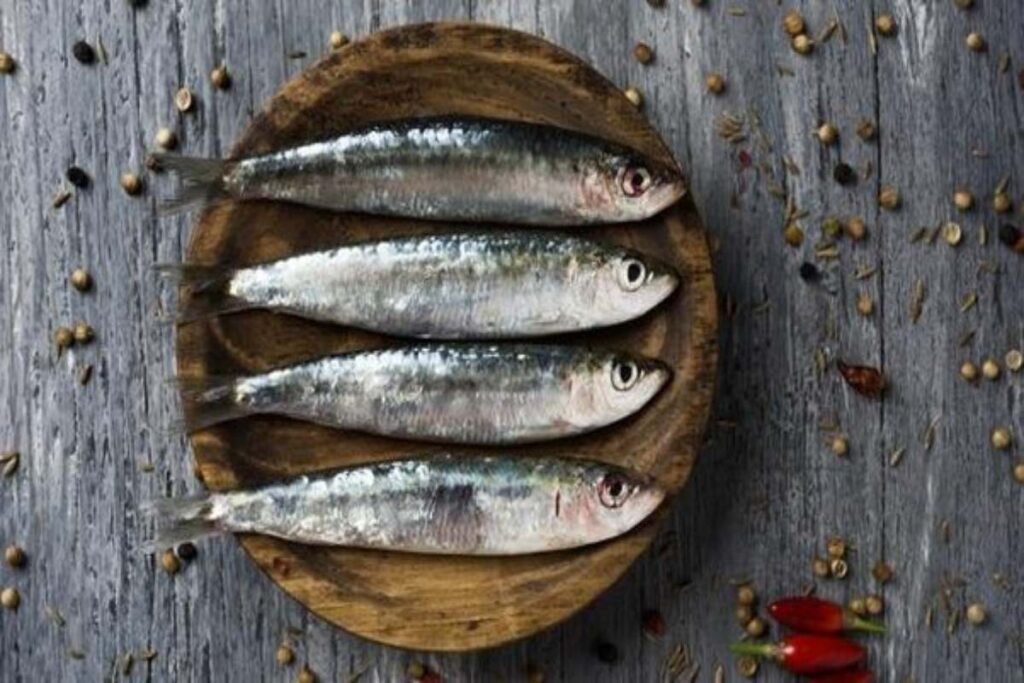A new study offers a solution to a global health crisis. What if I told you that just enjoying your steak could be the key to reducing noncommunicable disease rates? Let’s discover how.
Forage fish such as herring, anchovies, and sardines are not just ocean delights; they are a rich source of omega-3s and other essential nutrients and are more sustainable than red meat. But can this dietary shift benefit all, especially low—and middle-income regions?
Another recent study uncovered the potential of sardines. By switching red meat for forage fish, we could save a staggering 750,000 lives and say goodbye to diet-related disabilities by the year 2050. Moreover, the study notes that this dietary shift could benefit the above-mentioned regions.
This is mainly due to the affordability and quantity of these fish in those regions and the impact of heart disease in these areas.
ALSO READ: Expert Tips: Reducing PFAS in Your Drinking Water and Food
Moving from Beef to Sardines on a Global Scale
This culinary shift aims to explore the impact of swapping beef for sardines across 137 nations by 2050. Researchers used a comparative risk assessment framework to investigate diet-related noncommunicable diseases in adults.

Among their findings, directing fish resources to regions with scant seafood consumption, particularly in lower and middle-income nations, promises huge health benefits. Their analysis also showed that swapping red meat for forage fish could potentially save up to 500,000 to 750,000 lives.
Furthermore, implementing this transition could help reduce the number of years lived with disability by 8 to 15 million. As previously stated, it benefits low—and middle-income nations.
What Is the Impact of Diet on Chronic Diseases?
With 41 million lives claimed yearly by these silent killers, a transformative approach is due. Particularly disturbing is the excessive burden borne by low- and middle-income nations, where 77% of these tragic losses occur. According to researchers, nearly half of these losses are attributed to significant illnesses like coronary heart disease, stroke, diabetes, and colorectal cancer.
ALSO READ: Tips on How To Use Turmeric Milk for Cholesterol Management
Recent studies leave no room for doubt; it’s evident that red meat and processed meats, like beef, lamb, and pork, are the culprits. Luckily, with the situation, swapping red meats for their oceanic mates protects human health and environmental sustainability.
So, by 2050, this bold transition could rewrite the script, cutting years lived with disability by 8 to 15 million. This is with low- and middle-income nations poised to reap the lion’s benefits.
Can Forage Fish Prevent Disease?
Do you think meat can ever be replaced? Absolutely not! But looking at the pathway towards better health, it can. By welcoming this dietary change, nations worldwide could move closer to the recommended daily fish intake of around 40 kcal.
Thomas M. Holland, MD, physician-scientist, highlighted the benefits of transitioning from red meat to forage fish. He noted that the benefits of forage fish are just too great, from maintaining cholesterol levels to nurturing brain and cardiovascular health.
Holland attributed these benefits mainly to forage fish’s omega-3 fatty acids, including EPA and DHA, known to reduce inflammation, blood pressure, low-density lipoprotein (LDL) cholesterol, and triglyceride levels.
Forage Fish and Battle Against Cancer
Eliza Whitaker, MS, RDN, a registered dietitian, added to the benefits of omega-3 fatty acids found in forage fish. Although she was not involved in the study, she noted the fish’ cardiovascular benefits. The fatty acids may also fight against certain cancers.
Moreover, forage fish boast an impressive nutritional value beyond their omega-3 fatty acids. They also have vitamins D and B12 and essential minerals, including calcium, iron, and zinc.

With evidence linking red meat consumption to the development of colorectal cancer and other diet-related diseases such as diabetes and ischemic heart disease, the scales move decisively in favor of forage fish as a safer, more health-conscious protein source.
Sophie Lauver, MS, RD, founder of Plant-Based Perspective, further noted the key role of protein sources in shaping dietary choices. She hinted at a deeper narrative surrounding sustainability and ethical considerations. Notably, Sophie Lauver was not involved in the study.
You Might Also Like:
“I Really Parented Myself,” Drew Barrymore Reflects on Childhood Stardom
Jennifer Aniston Debuts Chic Spring Bob, a Modern Version of “The Rachel”
NHL Contemplates Arizona Coyotes’ Move to Salt Lake City
North West Stuns with $11,000 Balenciaga Bag, Twinning with Mom Kim Kardashian
Margot Robbie Takes on Monopoly Movie – New Move for the Board Game Queen?
